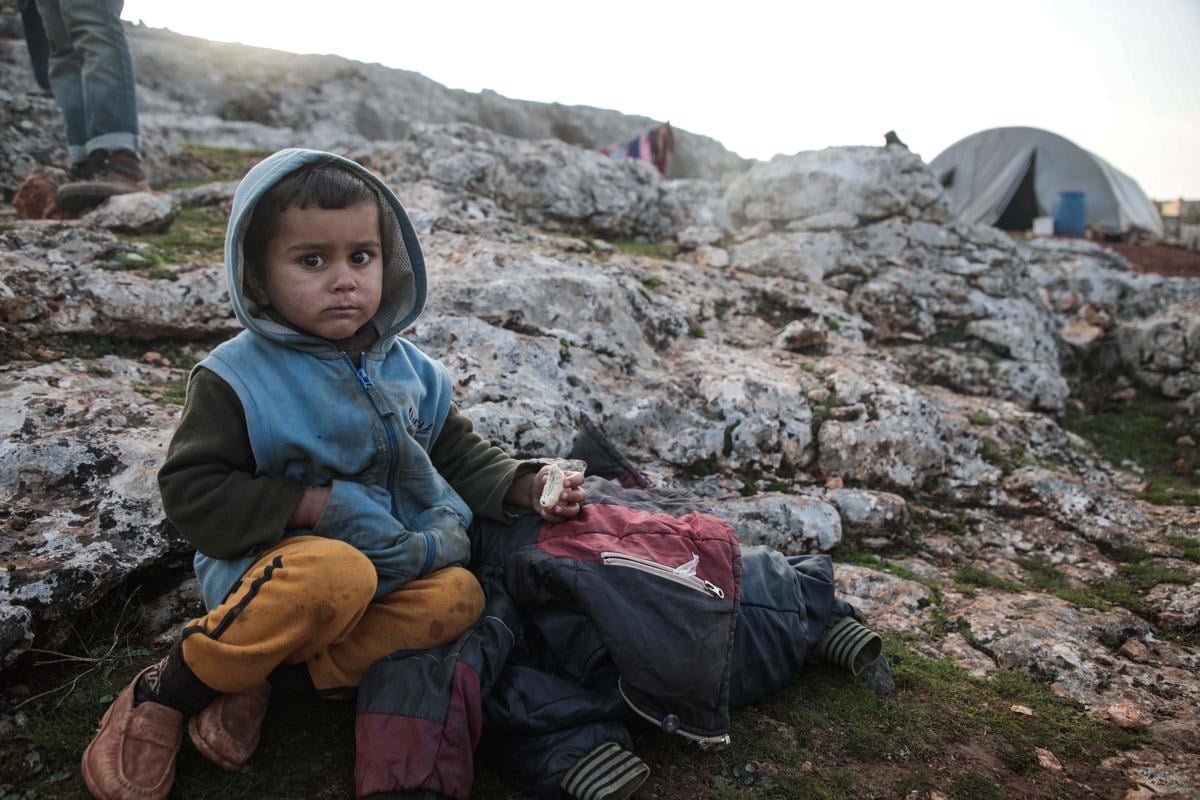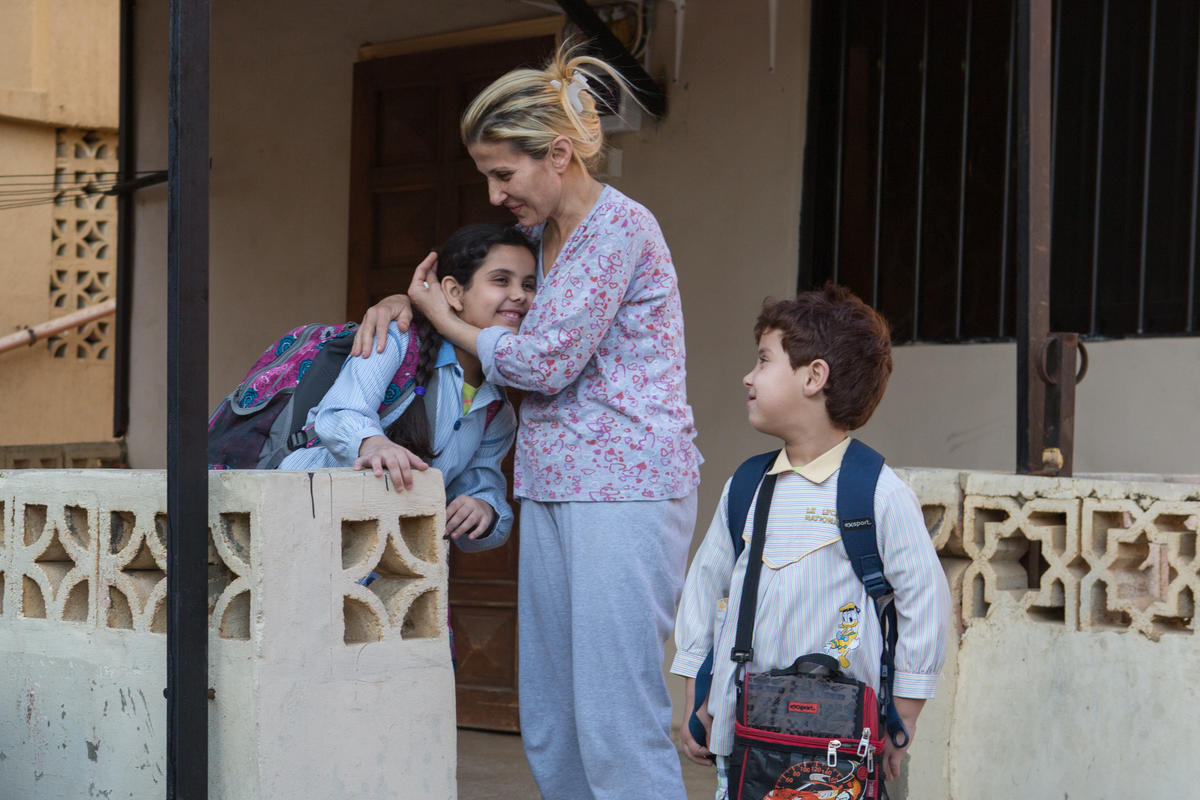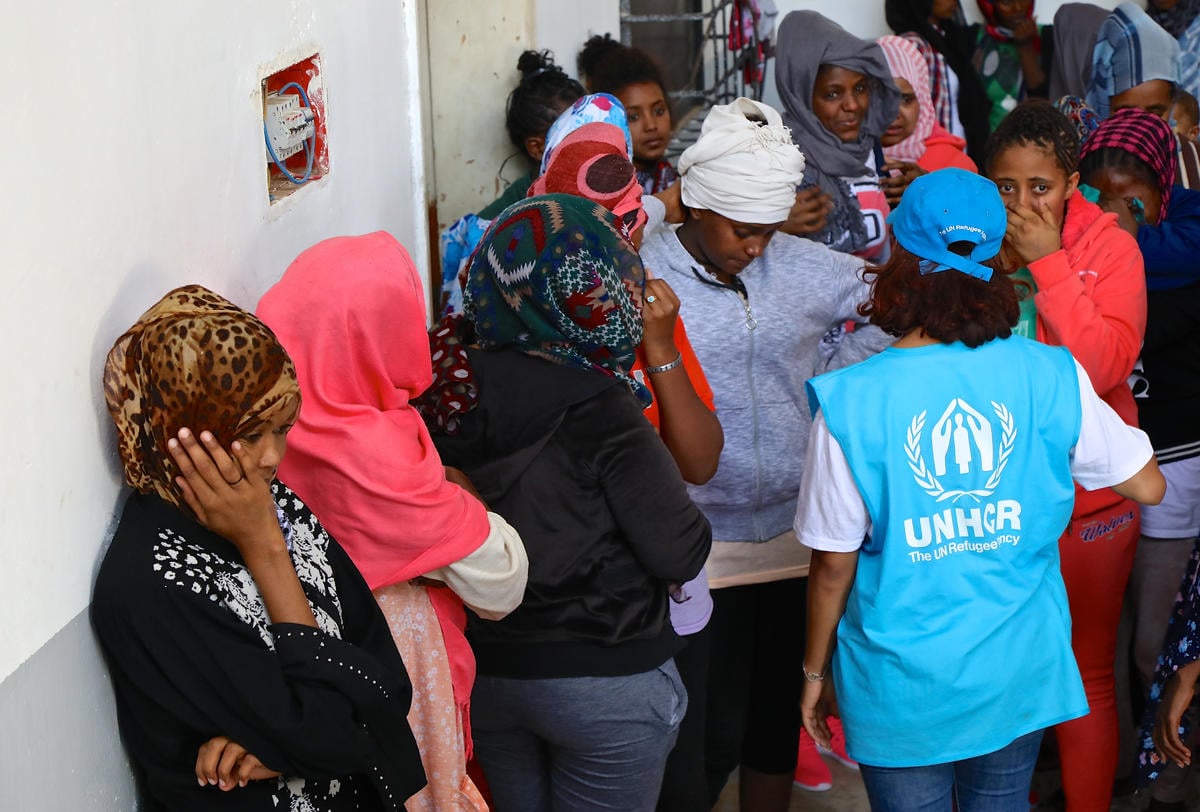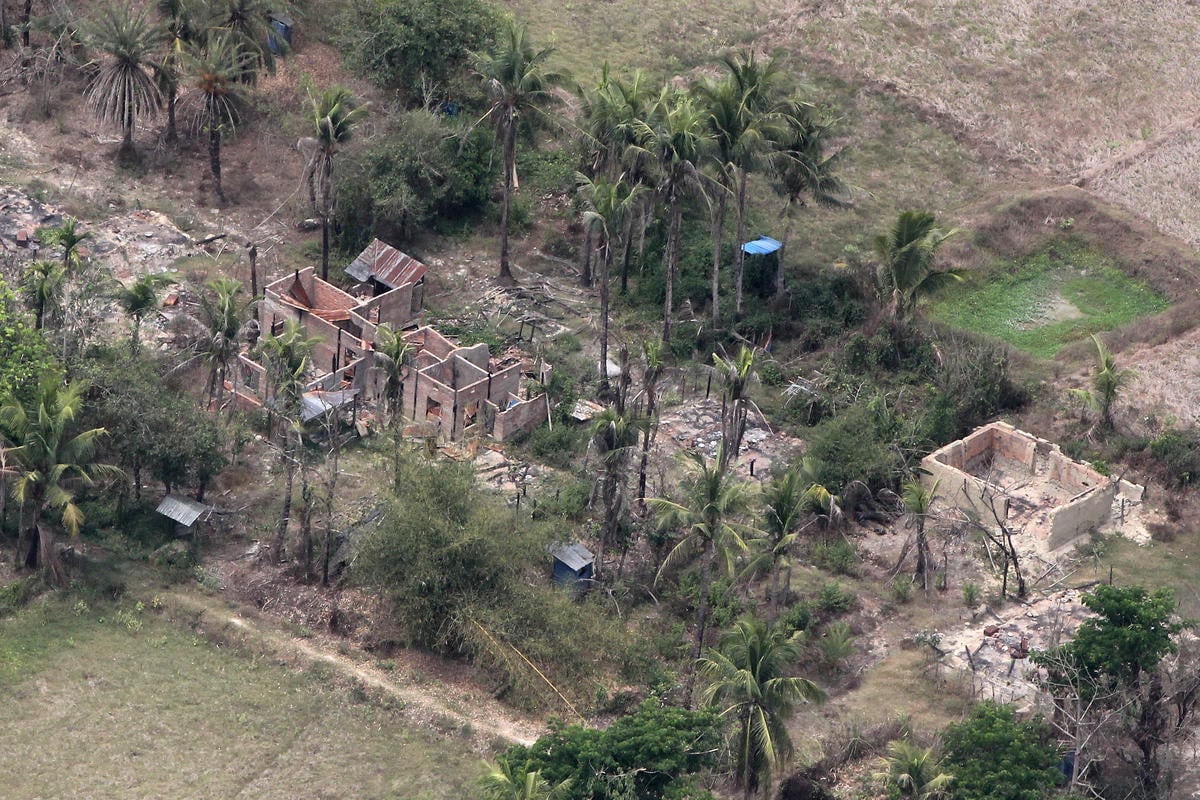Lubbers calls for more reconstruction in West Africa
Lubbers calls for more reconstruction in West Africa

CONAKRY, Guinea, May 3 (UNHCR) - UN High Commissioner for Refugees Ruud Lubbers is currently on an eight-day West Africa mission to witness the last phase of repatriation to Sierra Leone and to pave the way for the start of refugee returns to Liberia.
Over the weekend, the High Commissioner visited two refugee camps in Guinea. At his first stop, he lauded the good cooperation between UNHCR and its partners in Lainé camp, home to 32,000 Liberian refugees near Nzérékoré in the south-east.
Although many refugees expressed the desire to return home when UNHCR starts the repatriation to Liberia in October this year, Lubbers stressed that conducive conditions must be created to receive them in their homeland.
"You are the ones who fled your country because of the violence, you are the ones to return and rebuild for the future generation," he told the Liberian refugees in Lainé during his second visit to the camp in a year.
He added that a visible and sustained investment by the international community was needed to ensure that the refugees find minimal services back home. "The international community has made a lot of efforts towards the restoration of peace in the sub-region," he said. "But for this peace to be lasting, more will have to be done in terms of reconstruction for the destabilised countries."
Refugees in Lainé have actively participated in camp activities from the beginning, be it in training activities, security patrols or prevention against sexual and gender-based violence (SGBV) in the camp.
The High Commissioner visited the SGBV clinic run by Action for the Rights of Children (ARC) and the International Rescue Committee (IRC). More people have come forward to report cases of sexual violence, thanks to sensitisation campaigns among the population and better access to the legal system.
Lubbers emphasised that repatriation movements also depend on stability in the region, which can only be achieved through the revival of regional mechanisms for peace and conflict prevention. He called for countries of the Mano River Union - Guinea, Liberia and Sierra Leone - to start working in conjunction with Côte d'Ivoire and Mali to bring disarmament and demobilisation issues to a regional level.
While in central Guinea's Albadariah region, the High Commissioner visited Boreah camp, where he witnessed a return convoy of 188 Sierra Leonean refugees. The last phase of repatriation is continuing smoothly from Guinea's camps, with more than 9,000 repatriated so far this year and less than 6,000 remaining in UNHCR camps. Official repatriation and assistance to Sierra Leonean refugees will cease at the end of June this year.
For those Sierra Leonean refugees who remain in Guinea after that, the Guinean government has already agreed to help them integrate locally. UNHCR has embarked on a registration of urban refugees in Guinea, registering some 4,000 refugees - mostly Sierra Leoneans, Liberians and Ivorians - in Conakry so far. Urban Sierra Leonean refugees are also informed of their repatriation options.
At the end of June, UNHCR plans to hand over camp facilities and infrastructure to the local communities. The agency has already carried out a number of post-repatriation activities in all camps in Guinea, for the direct benefit of the local population. For instance, tree-planting activities have been taking place around the camps, including reforestation and the planting of fruit trees for local agriculture.
Educational activities on the management of forest resources have benefited refugees and the local population alike. Similarly, micro-credit schemes in agriculture and other activities such as soap-making and tie-dyeing have been made available to nearby villagers, who make up about 25 percent of each project. In addition, High Commissioner Lubbers said UNHCR will play a "catalytic role" in focusing the international community's attention on the refugee-impacted areas for global rehabilitation.
While in Conakry on Friday evening, the High Commissioner inaugurated the new UNHCR public library on refugee issues, located on the agency's premises. The library is dedicated to staff member Mensah Kpognon, who was killed in the border town of Macenta during a rebel incursion in September 2000.
Lubbers had started his mission in Sierra Leone, where he visited Mapeh internment camp for ex-combatants near Freetown and met with Sierra Leone's President Ahmad Tejan Kabbah. He noted that the repatriation to Sierra Leone was 80 percent complete and stressed that demobilisation has to be taken a step further, to the regional level.
He also underlined that his visit was mainly to put the limelight on areas of concern to UNHCR which needed more reconstruction efforts. President Kabbah in turn voiced his concern about the potential risks of further destabilisation and refugee crises in the region.
High Commissioner Lubbers completed the second leg of his three-nation tour after meeting Guinea's President Lansana Conte on Monday morning. He will spend the last three days of his mission in Liberia.









